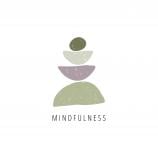4 Differences Between Reassurance Seeking Compulsions and Information Seeking
4 Differences Between Reassurance Seeking Compulsions and Information Seeking

In the treatment of Obsessive Compulsive Disorder (OCD), compulsions must always be eliminated, including reassurance seeking compulsions. However, it can be confusing telling the difference between reassurance seeking compulsions and information seeking questions and behaviors. So, how does one know the difference? Let’s discuss a few important points that differentiate these two concepts.
Curiosity
Information seeking, which is a process of gathering information or knowledge, comes from a place of curiosity. Individuals are attempting to obtain information out of curiosity or interest, such as:
- You’re curious about the agenda for your next board meeting, so you email your colleague.
- You want to take your significant other out on a date this weekend and Google new restaurant ideas.
- You look on Netflix to see if your favorite show has released new episodes yet.
- You plan a family vacation but are curious about possible destinations, so you ask some friends.
Compulsions, including reassurance seeking compulsions, are driven by anxiety as a result of being absorbed into an obsession.
Unknown Information
Reassurance seeking compulsions are often looking for an answer that we already know.
- You ask your doctor “Do I have cancer?” even though they have already told you that your bloodwork is normal.
- You ask your significant other “Do you love me?” even though they've already said ‘Yes’.
- You Google “Signs that I am a murderer” even though you already know you are not.
This differs from information seeking, where we do not have the information yet:
- Looking up the nutritional facts for your meal.
- The doctor telling you the side effects of a new medication.
- Checking the weather app for today’s weather.
Asking One Time
Reassurance seeking compulsions are repetitive rituals, meaning they are done multiple times. This compares to information seeking which is generally done one time. An exception is if you forget the information, need clarification, or may need to gather additional information for an ongoing question or project.
- I looked up one time what the right temperature to cook a roast was.
- I asked my child’s pediatrician one time how many milligrams of medication to give her for a fever.
- I asked my spouse one time if he enjoyed his surprise birthday party.
Reassurance seeking compulsions never happen once though. Compulsions breed more compulsions because doubt breeds more doubt. You think you will only ask one time but OCD drives you to ask again and again.
Values
Lastly, information seeking is driven by our values. You genuinely want to do this behavior as it aligns with how you want to live your life. As opposed to the function of our compulsions which is to make anxiety go away; this is typically not a value. If you are not sure, ask yourself, 'If anxiety or OCD did not exist, would I still be doing this right now?'. If not, it is most likely not a value. Instead, it is probably driven by anxiety.
For more information on reassurance seeking compulsions including all the sneaky ways they can show up and recommended treatments, The Compulsive Reassurance Seeking Workbook is now available.




















